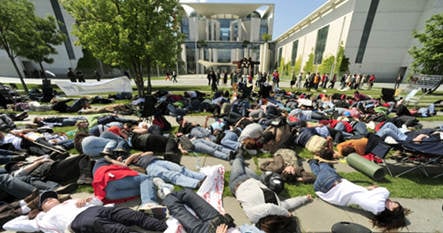“We are not putting our health at risk for the chancellor,” one of the women was quoted as saying.
The six have been camping in a field next to the chancellery building in central Berlin for a week along with about 150 mainly female dairy farmers. They have set up life-sized plastic cows in the colours of the national flag.
They stopped eating on Wednesday, vowing only to drink fruit juice and tea until Merkel agreed to speak to them about organising an emergency national milk summit.
The protest attracted extensive media coverage five months ahead of national elections on September 27th.




 Please whitelist us to continue reading.
Please whitelist us to continue reading.
Member comments